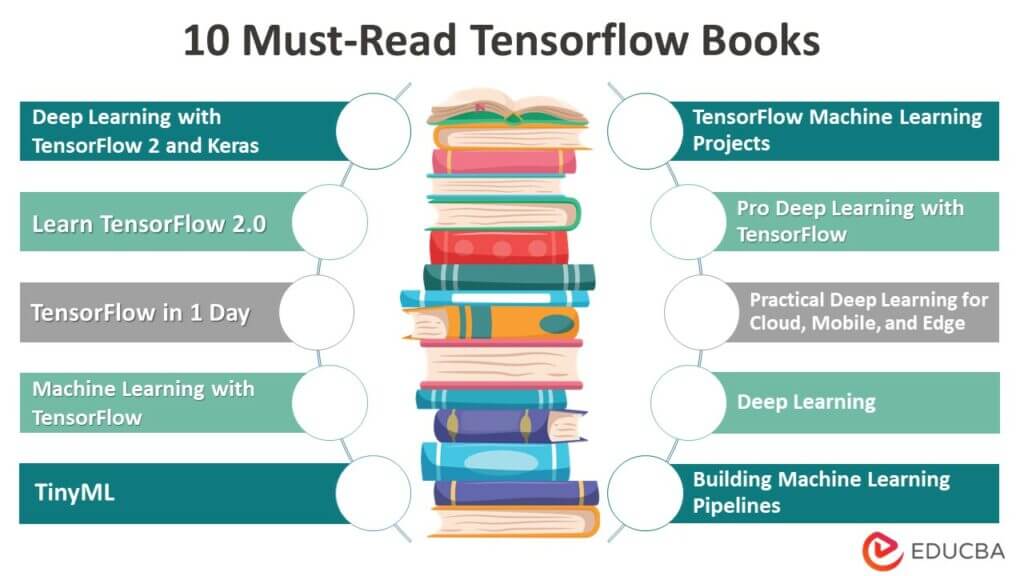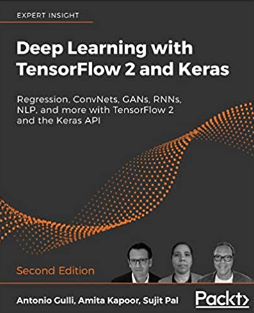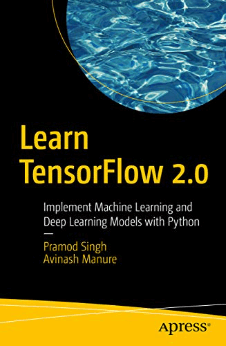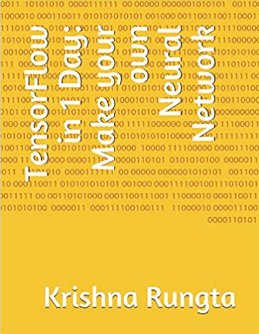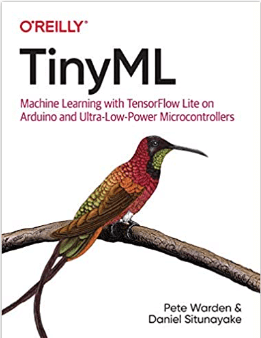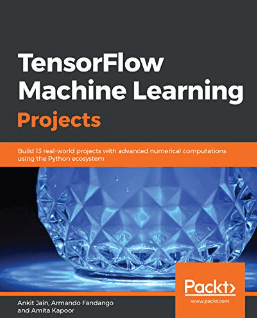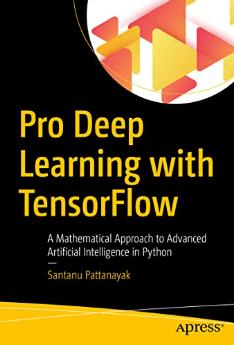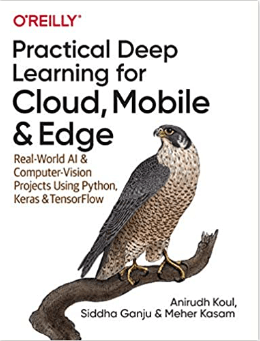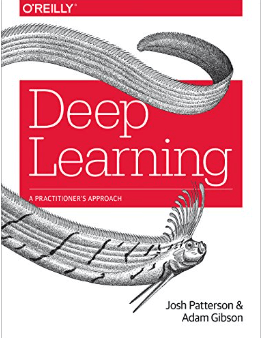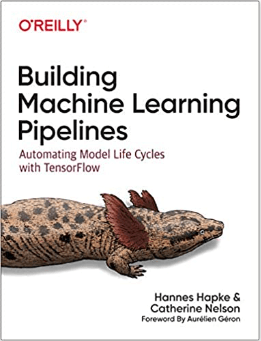Best Books To Master Tensorflow
TensorFlow is one of Google’s most epic inventions, which has reduced the daunting process of implementing machine learning models for testing, training, and dishing out predictions for analysis. Learning about this open-source library will take you to the next level of your programming journey. So without further ado, here are the ten books in no particular order to satisfy your cravings for TensorFlow.
Key Highlights
- Includes guidance for natural human language and usage of convents in image classifiers
- Hands-on approach with detailed examples and key points about TensorFlow.
- Provides a down-to-earth narrative and thorough details about TensorFlow
- Covers the fundamental topics of TensorFlow ANN, autoencoder, and linear regression
- Provides a fun and practical approach to learning TinyML with TensorFlow Lite
- Provides a brilliant take on TensorFlow with concise, precise, and crystal-clear documentation of reading material
10 Must-Read Tensorflow Books
Let us look at the Tensorflow Books and see which one best suits your needs:-
1. Deep Learning with TensorFlow 2 and Keras
Author: Antonio Gulli, Amita Kapoor, Sujit Pal
Book Review
Enter the world of deep learning with the aid of TensorFlow and Keras with this up-and-coming technical cum introductory guide. This version is easier to follow and implementable with much-improvised context.
Key Takeaways from that Book
- It is ideal for Python developers and machine learning experts as it requires prior knowledge.
- Further your learnings in neural network foundations with TensorFlow 2.0, word embeddings, and reinforcement learning.
- Get the most out of automated Google tools, use convents in image classifiers, get deep learning guidance for natural human language, etc.
2. Learn TensorFlow 2.0: Implement Machine Learning and Deep Learning Models with Python
Author: Pramod Singh, Avinash Manure
Book Review
Making the exhaustive list of complex APIs in the ever-changing field of TensorFlow is a tough nut to crack, but this book makes it plausible by doing it just right. Proper implementation of code blocks revolved around developers while giving a brief overview of keras.
Key Takeaways from that Book
- A practical, straightforward, and summarized book for learning new features of TensorFlow 2.0
- Online documentation of this book’s code scripts is available on GitHub
- Revisit the TensorFlow API to find NLP models in production, their use in Computer vision, etc.
3. Tensorflow in 1 Day
Author: Krishna Rungta
Book Review
Get ready to learn through a hands-on approach, detailed illustrious examples, and critical points about TensorFlow. Unlike the title says, it is near impossible to learn TensorFlow in one day, but the book clears the basic concepts about the topics of AI/ML in a concise and gets to know the topics quickly.
Key Takeaways from that Book
- Lays the fundamental topics of TensorFlow ANN, autoencoder with TensorFlow, and linear regression case study in a brief yet understandable way.
- Learn TensorFlow basics, graph visualization, and jupyter notebook tutorial simply and effectively to stay fresh in your memory.
4 Machine Learning with TensorFlow
Author: Nishant Shukla
Book Review
The narrative is very down to earth, easy to follow, and complete details about TensorFlow. Ready yourself with the technical know-how to practice the technical code blocks of TensorFlow. The reader wants pre-requisite Python and basic algebra knowledge for an immersive experience.
Key Takeaways from that Book
- Be blown away by the auto-focus for machine learning described in this book, coupled with topics such as autoencoders, recurrent neural networks, and clustering data.
- The highlights include seq2seq models, a broad-length introductory lesson on Ml, and utility landscapes, making the book excellent for beginners and budding developers.
5 TinyML: Machine Learning with TensorFlow Lite on Arduino and Ultra-Low-Power Microcontrollers
Author: Pete Warden , Daniel Situnayake
Book Review
Have a fun and practical approach to learning this new technology of TinyML with TensorFlow lite with the help of very low-cost equipment such as Arduino, Sparkfun, etc. This book can deliver intriguing examples, from learning simple regression models to creating a sine wave function and audio detection to a fully-fledged image classification model.
Key Takeaways from that Book
- Achieve the working of cool and exciting embedded systems with the help of tinyML.
- Optimize TensorFlow lite in designing a model architecture, importing dependencies, machine learning technologies, and many more.
6 TensorFlow Machine Learning Projects
Author: Ankit Jain, Armando Fandango, Amita Kapoor
Book Review
A comprehensive guide to all ML enthusiasts looking to get their hands dirty with application-oriented programming in TensorFlow. Considered a lively book by many, the reader won’t regret using this book to get in-depth learnings on logistic regression, capsule networks, and real-life problems.
Key Takeaways from that Book
- Find learning guides on object detection at a large scale with TensorFlow, TensorFlowOnSpark, understanding Bayesian deep learning, etc.
- Dive deep into content, such as generating book scripts using LSTMs, playing Pacman with deep reinforcement learning, and sentiment analysis in your browser using TensorFlow.js.
7 Pro Deep Learning with TensorFlow
Authors: Santanu Pattanayak
Book Review
The author brings the book, an immersive guide for budding deep-learning enthusiasts. It includes a profound focus on math and the complex types of different learnings, which proves helpful in learning about the complicated maths behind the backpropagation used in DL models.
Key Takeaways from that Book
- Provides an excellent section on gradient descent, MLE, recurrent neural networks, etc.
- Introduces RNN, generative adversarial network, backpropagation on neural networks, and models like LSTM and GRU.
8 Practical Deep Learning for Cloud, Mobile, and Edge
Author: Anirudh Koul , Siddha Ganju , Meher Kasam
Book Review
Get to know about the inside magic of creating deep learning models that have the power to create the next viral AI app. The book is infused with careful learning about fun and challenging projects to test your skill set and keep you occupied for the joyride it is.
Key Takeaways from that Book
- Use 50+ practical tools for enhancing model accuracy, which scales to millions of users.
- Develop computer vision models with Keras, core ML, and TensorFlow Lite and produce results on raspberry pi, jetson nano, etc.
9 Deep Learning: A Practitioner’s Approach
Author: Josh Patterson, Adam Gibson
Book Review
A comprehensive guide for prolific absorption of advanced machine learning topics, mainly ANN, CNN, and various other algorithms. Has a lot of potential in D4LJ APIs meant for practitioners’ use in their work routine.
Key Takeaways from that Book
- Helpful in getting to know about neural network fundamentals and mapping specific deep networks to the exact problem.
- Walk through the fundamentals with data types like DataVec, and DL4J in Spark and Hadoop.
10 Building Machine Learning Pipelines: Automating Model Life Cycles with TensorFlow
Author: Hannes Hapke, Catherine Nelson
Book Review
A brilliant take on TensorFlow with equal proportions of conciseness, preciseness, and crystal clear documentation of reading material perfectly blended with the practical know-how of pipelines with the help of TFX. Contains the material for both the development and automation of ML pipelines.
Key Takeaways from that Book
Orchestrate the varied TensorFlow models created using tensorflow serving or develop a pipeline using tensorflow extended.
Cover the concepts of data versioning, data preprocessing, and model serving in a robust and scalable methodology.
Recommended Articles
Our Top 10 Tensorflow books compilation aims to be helpful to you. For more such Tensorflow books, EDUCBA recommends the following,
